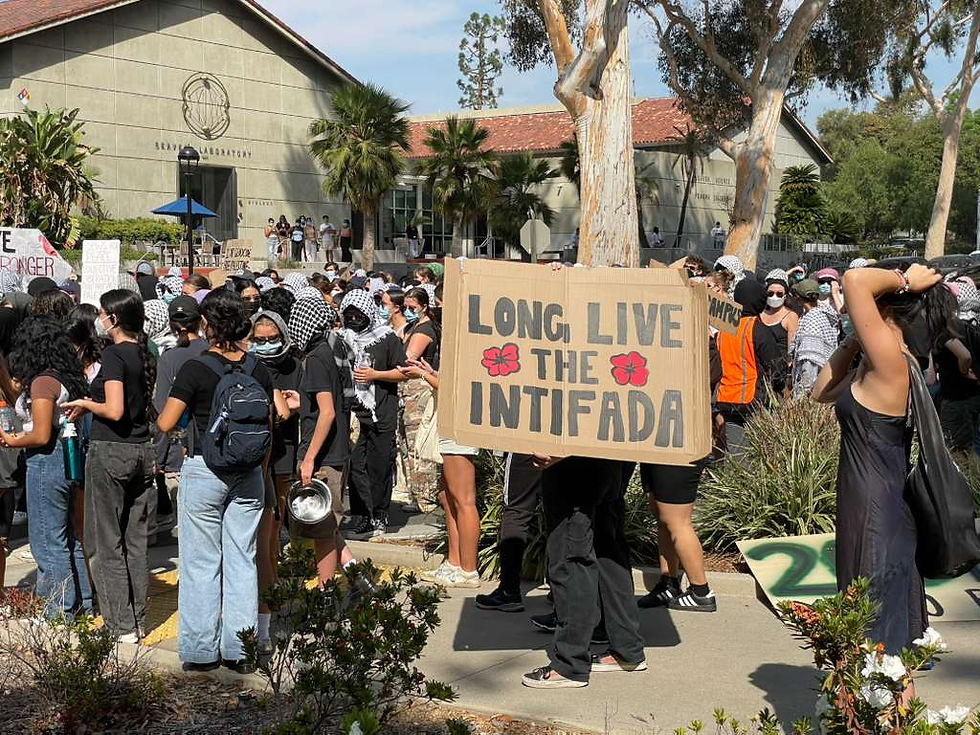Pro-Democracy Hong Kong Activist Visits Claremont Colleges
- Pieter van Wingerden

- Oct 30, 2022
- 3 min read
Updated: Mar 7, 2023
Hong Kong pro-democracy activist Sunny Cheung spoke at Pomona College last month. The event was part of the Hong Kong Democracy Council’s visit to Southern California from Sep. 28 to Oct. 3. He also spoke at the University of Southern California and the Taiwan-focused Formosan Association during his visit.
Cheung discussed the future of Hong Kong under U.S.-China competition. “We are currently witnessing the most severe crackdown [on human rights] in Hong Kong history,” said Cheung, “Many people are either in prison or in exile.”
Since the 2014 Umbrella Movement, the Hong Kong government’s crackdown on civil society has garnered international attention. At the height of the protests, more than 10,000 Hong Kongers were arrested, with over 1,000, many of them young students, sentenced to jail. The Hong Kong government also disqualified numerous political candidates, including Cheung, and outlawed pro-democracy and pro-independence political parties in 2020.
Since then, Beijing imposed the National Security Law, which broadly outlawed acts of secession, subversion, terrorism and collusion with foreign forces. Observers have criticized the law for primarily targeting pro-democracy political expression and assembly.
Leading up to the event, some students taped a Chinese flag to the venue’s wall, which campus security asked that they remove. The same students, during the Q&A period, questioned the validity of many of Cheung’s claims, arguing that Cheung failed to mention the discrepancy between police and organizer estimates of protest turnout, the violent nature of the protests and that Hong Kong never had a democratic government in the past.
Cheung responded, “This is why I love America… political freedom and freedom of speech. Make your own judgment. I’m not standing here to indoctrinate you… I’m just objectively describing the facts.”
Cheung acknowledged that some of the pro-democracy protesters in Hong Kong were violent. “I won’t deny that,” he said. “I can’t say that the movement was 100 percent peaceful. However, we have to understand the imbalance… when you have nothing to defend yourself, what can you do?”
Cheung’s activism began when he was still in high school when he joined protests against the 2012 Moral and National Education Curriculum, which set out to implement a reformed curriculum aimed at developing a Chinese national identity in Hong Kong and a commitment to CCP ideals.
His activism continued during the 2014 Umbrella Movement and the 2019 Anti-Extradition Bill Protests. He became the spokesperson for the Hong Kong Higher Institutions International Affairs Delegation and testified at the 2019 US Congressional-Executive Commission on China. In 2020, he was the candidate for the Hong Kong legislative election’s Kowloon West constituency, but the Hong Kong government barred him from running.
“We do cherish our very rich history, rule of law, judiciary system, freedom of speech,” he said. “And that’s why we hope that this kind of tradition and legacy can be maintained and safeguarded.”
Cheung also shared with the audience the work of the Hong Kong Democracy Council, a non-partisan, non-profit DC-based organization that works to protect “Hong Kong’s basic freedoms, autonomy, and the rule of law.” The council, where Cheung is an advisor, worked with Congress to pass the Hong Kong Human Rights and Democracy Act and the Hong Kong Autonomy Act.
Currently, the council is “recommending and urging” Congress to allow the U.S. to accept more people fleeing from Hong Kong and to sanction entities and individuals. “As an individual activist in exile, I would like to say the diaspora is expanding. I am trying to apply for asylum,” he said.
Cheung offered hope for the future, saying that “with a strong identity, we will have strong political participation and political awareness from the youth. They are still finding ways to get involved.”
Cheung encouraged the audience of mostly college students to “stop the Chinese authoritarian expansion and try to protect [their] own democracy.”
Image via McCain Institute
.png)



Comments